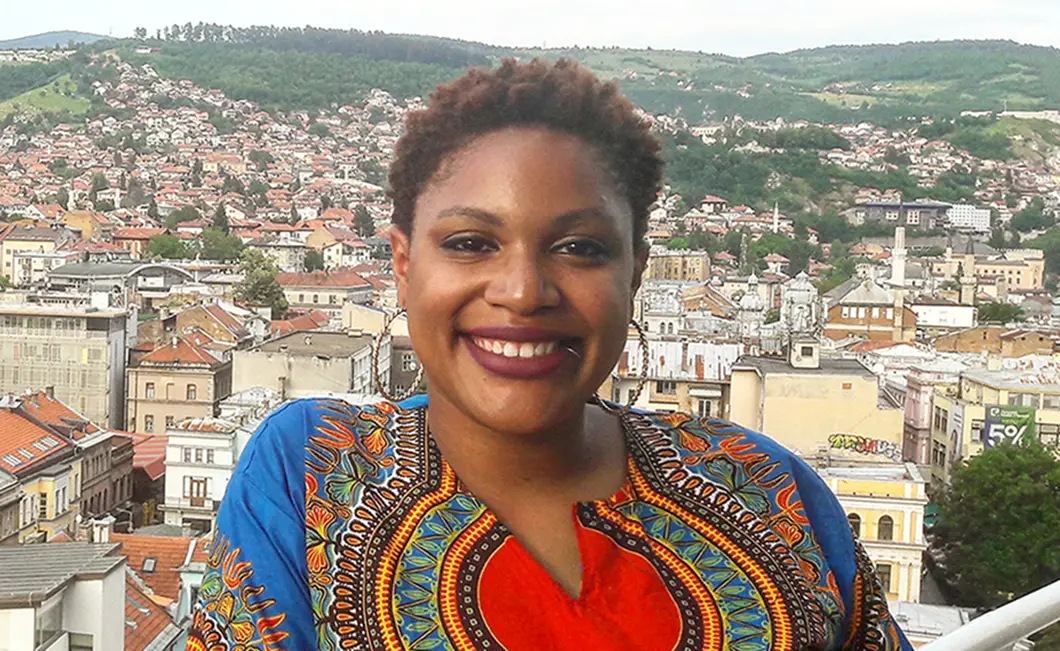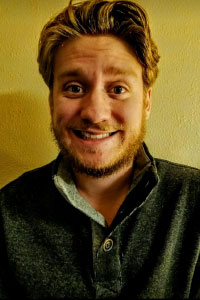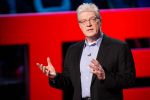Despite growing up with six siblings and only a single parent, Ella Tazuana Johnson describes a seemingly normal childhood: “We had fun times with the typical sibling disputes, like hogging the shower or TV. To me life was normal.” Johnson’s upbringing with a single parent is more normal than one might expect. According to the 2016 U.S. Census, 23 percent of children in the U.S. grow up with a single mother, with 17.2 million children walking down a similar path like Johnson.
Yet with her mother having so much to deal with, Johnson often had to learn things herself, with the assistance of school and after-school programs. She was able to pull through stronger than ever, learning that sometimes you only can go as far as you push yourself.
However, that “normal” childhood would abruptly come crashing down when Johnson’s family became homeless. Suddenly, the ambitious young middle school student had to help care for her distraught siblings, find shelter every night, while still trying to be a kid, at an age that most can’t even get to school by ourselves. Her struggle with homelessness left her dark memories that she still struggles to talk about to this day. Yet somehow, she was able to maintain some sort of perspective: “I know my situation isn’t the worst in the world, so I don’t complain looking back at it.”
Homelessness is a problem that many Americans tend to overlook, but the problem is too extensive to ignore. Around 1.4 million children are homeless every year in the U.S. In 2013, that number reached record highs with one of every thirty children experiencing homelessness, adding up to nearly 2.5 million kids. Only 55 percent of those homeless children were even able to attend school regularly like Johnson—she wouldn’t fail to squander that opportunity.
Johnson is a shining example that the conditions you grow up in by no means define you. Just a decade later that homeless middle schooler became student of the year at Bucknell University in 2017. Johnson never allowed herself to behave like a victim, it’s not something her older sister Shaunsie would have done. Shaunsie became the strongest role model of Johnson’s life from a young age. She was the only one in Johnson’s family to put herself through a four-year university, all while being a single mother herself. Even when things were at their worst “she always was there for me and my younger sisters,” Johnson added. Seeing her sister go through the process with all of the odds stacked against her gave Johnson the drive to do the same.
That journey through college began with the Los Angeles Posse 4, a full-tuition merit-based scholarship that sends a group of about ten students, or a “posse,” to the best colleges across the country. The driven Johnson proved that she was able to overcome an immense amount of obstacles in her past and became a prime target for the Posse.
Her and her posse spent the last eight months of high school together, as they were able to get to know each other and push each other with their own varying perspectives. Johnson had become an integral part of a collection of the brightest talent the nation had to offer. Despite not always being the best of friends, they managed to get the best out of one another, as Johnson recollects, “I wouldn’t have survived had it not been for my posse.” The Los Angeles Posse 4 helped land Johnson at Bucknell, and from there Johnson’s drive for knowledge was let loose on the world.
To say that the Linguistics and Arabic/African Studies major has had an eventful college career would be the understatement of the ages.
Some of her proudest accomplishments came with her time working as a project assistant for the Lewisburg Prison Project. She went from working on smaller research assignments like investigating prison food, to a much larger endeavor in researching the physical environment prisoners live in. Her extensive research unearthed a lot of significant consequences prisoners experience in the harsh physical environment they endure. Her research became so valuable that she was a guest speaker at Susquehanna University in central Pennsylvania, and included the research in her TEDX talk from this past April.
Johnson also took advantage of her college experience to see the world while understanding new cultures with her school’s study abroad program. She started with a three-week program in the Caribbean. In her first trip out of the country, she gained a valuable perspective on English works based in the Caribbean, including a trip to the house of Alexander Hamilton in Nevis.
In Ghana, Johnson had a much different trip. Although the primary focus of the course was on linguistics, she learned about the forced migrations on the African continent, which gave her a dark perspective into how history affects the modern world.
That being said, the biggest prize came in her last study abroad trip to Jordan. She had idolized the small Arabian country since she was a child. Despite being alone in a foreign country not exactly known for its liberal treatment of women, Johnson admits that she felt “safer there than I ever have in the US.” Her travels struck such a chord that her goals are to eventually end up in Jordan. “People seem to have so much more life in them, even though life in parts of Jordan are far from easy,” she said.
Although, Johnson’s most significant impact overseas would come with the Humanity in Action fellowship this past summer. The international education fellowship brought students from all across the U.S. and Europe, to engage in various aspects of discrimination and issues brought on by the destruction of World War II. These future world leaders were placed in Sarajevo, Bosnia and Herzegovina. The students focused on the central European nation before, during and after the Bosnian Civil War and genocide of the 1990’s.
The fellowship included site visits to Banja Luke, Mostar and Srebrenica, the graveyard where over 7,000 Bosnian Muslim boys and men were executed, guest lectures from Bosnian leaders, politicians and even the granddaughter of Yugoslavia’s first president, Josip Broz Tito, and most importantly a chance for the fellows to share their own varying perspective.
Johnson discussed with her counterparts her journey navigating through an age-old brand of racism back home in the states. Incredibly on the land that brought the world a bloody ethnic cleansing, brought together impassioned millennials from across the world to engage in diplomatic dialogue.
After graduation, Bucknell’s 2016-17 Student of the Year will head off to Morocco with the Peace Corps. Working in the youth development sector, she’ll hope to embrace the unique culture of yet another foreign destination, and be able to bring yet another unique perspective back to her home country.
In truth, who knows what Johnson’s future holds? The young woman has vaulted from homelessness to a national treasure, it’s fair to say the cards lie in her hands from here on out. “What’s next for me,” she asked, “well, interview me in a few years and I’ll let you know.”

















